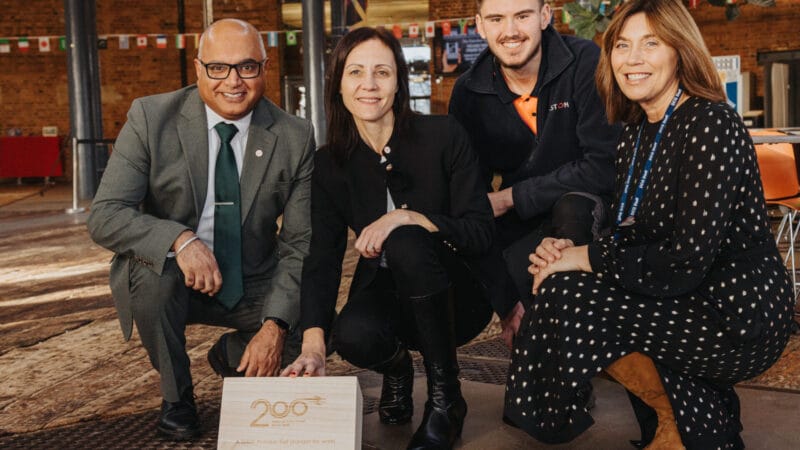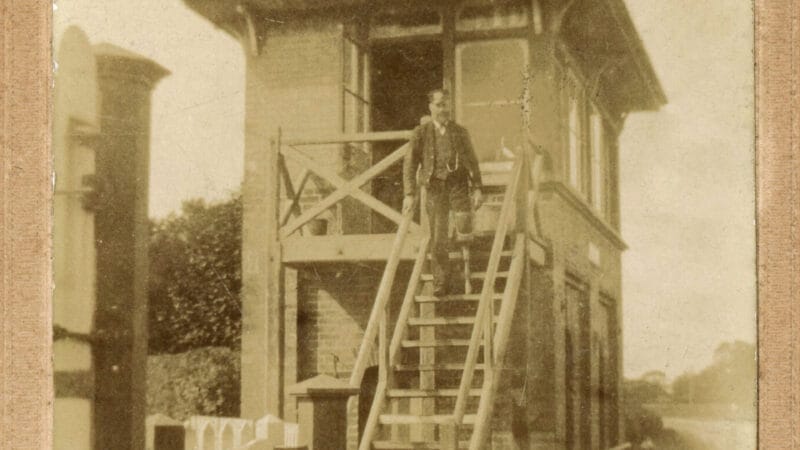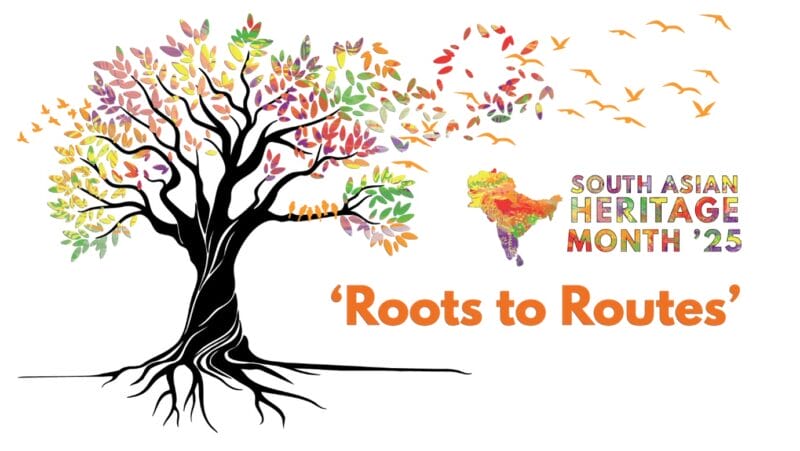
Il tema di quest'anno per il Mese del Patrimonio dell'Asia meridionale è "Dalle radici alle rotte", un'esplorazione del ricco percorso di crescita e delle connessioni in evoluzione che si sono create attraverso le generazioni. Con il 2025 che segna il 200° anniversario della ferrovia moderna, è giunto il momento di guardare indietro ed esplorare l'evoluzione di coloro che, con il loro patrimonio storico-culturale, lavorano oggi nel settore ferroviario.
Oggi, il settore ferroviario vanta numerosi colleghi di origine sud-asiatica che ricoprono ruoli diversi a vari livelli, dalla prima linea ai ruoli di leadership, a simboleggiare il progresso avvenuto negli ultimi 200 anni. È importante riconoscerlo per poter costruire relazioni significative che funzionino in modo più efficace in tutto il settore, rendendolo un luogo di lavoro accogliente.
Di seguito una raccolta di storie dei colleghi di Network Rail per celebrare il Mese del patrimonio dell'Asia meridionale, mentre guardiamo con ansia ai prossimi 200 anni di ferrovie.
La storia di Gurjot
Dopo 10 mesi sono orgoglioso di ripercorrere il mio percorso per arrivare fin qui, sia a livello personale che professionale, mentre festeggio il mio primo Mese del patrimonio sud-asiatico nel settore ferroviario.
La mia storia attraversa i continenti. I miei nonni sono cresciuti in Afghanistan, ma si sono trasferiti in Germania. Questo a causa del conflitto che ha segnato gran parte della loro infanzia. Quindi le mie radici sono in Afghanistan, dove è cresciuto mio padre. In seguito, ha sposato mia madre, una fiera donna punjabi proveniente dalla splendida città di Amritsar, nel Punjab, in India, e insieme si sono trasferiti nel Regno Unito dopo la mia nascita in Germania, a 4 mesi. Sono cresciuto nel Regno Unito.
Il loro percorso è stato costruito su duro lavoro, sacrificio e resilienza. Questo perché mio padre ha avviato delle attività nel Regno Unito e ha lavorato instancabilmente per dare alla nostra famiglia una vita migliore. Grazie al suo impegno, sono cresciuto con molta stabilità, opportunità e un profondo apprezzamento per le libertà di cui godo oggi. Posso vivere una vita dignitosa grazie al duro lavoro della mia famiglia.
Per me 200 anni di ferrovia hanno un significato personale.
Da quando sono entrato a far parte di Network Rail come apprendista ingegnere a novembre, ho potuto sperimentare come questo settore offra a persone come me la piattaforma per crescere, sentirsi parte di un gruppo ed esprimere chi siamo.
Da fiero Sikh, indosso il mio turbante per lavorare con orgoglio e senza alcuna restrizione. Sono stato accolto a braccia aperte, ho stretto solide amicizie e ho trovato un ambiente di lavoro in cui diversità e uguaglianza sono valori condivisi.
La ferrovia mi ha dato la possibilità di essere me stesso, non solo come ingegnere, ma come una persona la cui identità, cultura e valori sono sempre rispettati.
La storia di Rajinder
Sono più di 20 anni che lavoro nel settore ferroviario, da quando sono entrato a farne parte il 24 gennaio 2004, e lo adoro ancora. Una cosa che non do per scontata è poter arrivare al lavoro e sentirsi davvero a proprio agio, il che è una fortuna. In questi 20 anni ho ricoperto vari ruoli e lavorato in diverse aree di Network Rail. Non è sempre stato facile e ho dovuto affrontare diverse sfide, ma guidare il cambiamento è ciò che mi sono sempre sentito spinto a fare. Ho visto il cambiamento avvenire in tutta l'organizzazione e nel settore in generale. È un cambiamento continuo. Non si ferma mai e quindi non dovrebbe.
Per me, "Women in Rail" ha cambiato anche la mia vita. Dai momenti difficili e difficili (personalmente e professionalmente) all'essere la prima donna di origine etnica a vincere il premio "Donna Ispiratrice dell'Anno" ai primi Woman in Rail Awards 2018. Mi ha aiutato a raggiungere i miei obiettivi, crescere e aiutare gli altri. Mi ha dato la sicurezza di ispirare gli altri a parlare di un argomento tabù, spingendomi a diventare Ambasciatrice dell'Employers' Initiative on Domestic Abuse (EIDA) e a promuovere con successo il modo in cui le organizzazioni del settore ferroviario integrano una risposta alla violenza domestica nella loro cultura aziendale, come rete di sicurezza per chi ne ha bisogno. A pensarci bene, veicoli di cambiamento come "Women in Rail" devono esistere, collaborando con altri per poterci dare forza e migliorare reciprocamente le situazioni nelle organizzazioni del settore ferroviario.
La storia di Jasmine
La ferrovia occupa un posto speciale nella storia della mia famiglia. Quando la famiglia di mia madre emigrò dal Gujarat, in India, nel Regno Unito negli anni '60, i treni divennero il loro mezzo per esplorare la nuova casa: viaggiare attraverso la Gran Bretagna per visitare la famiglia, vedere le attrazioni e costruire ricordi. Mio nonno ha persino lavorato alla stazione di Paddington per un periodo. Uno dei nostri aneddoti più cari è quello di quando dimenticò accidentalmente la sua valigetta su un treno, provocando un'evacuazione – solo per poi ritrovarla con dentro solo i suoi occhiali e i panini per pranzo! Ancora oggi conserviamo quella stessa valigetta con i suoi occhiali dentro, a ricordo delle risate e dell'amore che le ferrovie hanno portato nelle nostre vite. Per me, la ferrovia significa connessione, unire le persone e creare ricordi che durano per generazioni. La mia speranza per il futuro è che continui a unire le comunità e ad aprire opportunità per tutti. Rimanere connessi è fondamentale.
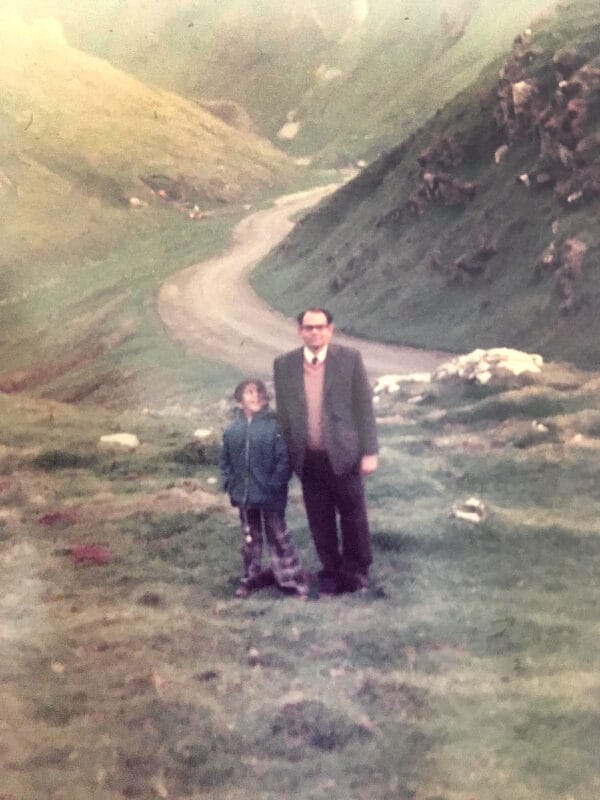
La storia di Kanta
Mentre celebriamo i 200 anni delle ferrovie britanniche, mi ritrovo a ripensare alle mie radici culturali, in particolare al periodo anglo-sikh e alla storia del Maharajah Duleep Singh (1838-1893). Visse a Elveden Hall, vicino a Thetford, nel Norfolk, proprio al confine con il Suffolk. Durante le mie ricerche sugli spostamenti dell'Impero Sikh e della sua famiglia, ho scoperto quanto viaggiassero, sia in India che nel Regno Unito, utilizzando la rete ferroviaria. Quel legame con i treni è diventato per me un legame personale, che collega la mia eredità culturale alla storia dei viaggi. È un tema appropriato per "South Asian Heritage 2025: Roots to Routes".
Una figura di spicco è la figlia del Maharaja, la principessa Sophia Duleep Singh (1876-1948). Fu una donna straordinaria, suffragetta, infermiera della Croce Rossa e una fervente critica del dominio britannico in India. Visse tra due mondi, usando il suo status di sovrana per sostenere la lotta per il diritto di voto delle donne. Oggi è onorata con una targa blu, presso la Faraday House in Hampton Court Road, dove visse per oltre 50 anni. Lei e le sue sorelle viaggiarono molto anche in treno.
Di recente, mentre lavoravo come membro del team eventi di Railway 200 mentre l'Inspiration Exhibition Train si trovava alla stazione storica della Severn Valley Railway, ho notato una testata del treno chiamata "Principessa Sofia" nell'area del bar (vedi immagine). Mi ha strappato un grande sorriso. In quel momento, ho percepito il profondo legame tra la mia eredità Sikh e la lunga storia dei viaggi in treno.
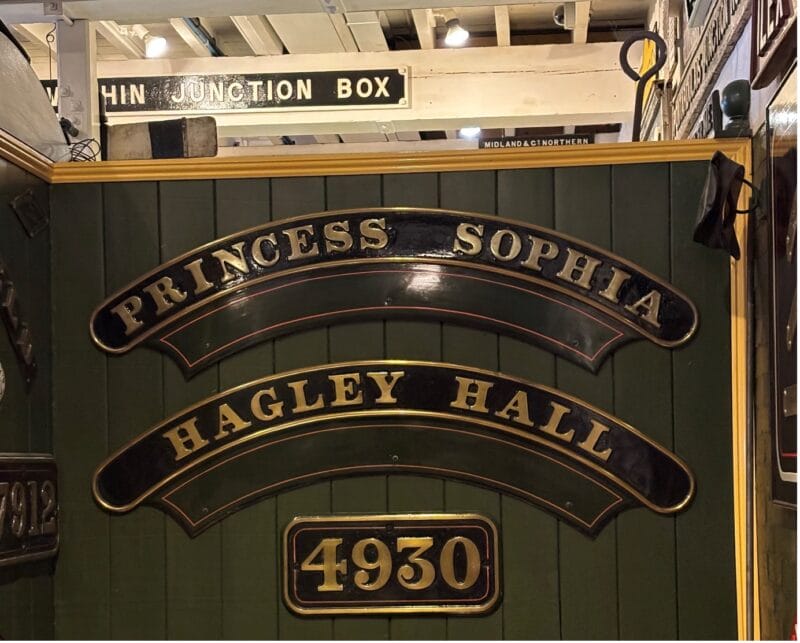
La storia di Tahibur
200 anni di ferrovie significano molto per me, perché le ferrovie servono e servono da sempre molte persone in tutto il Paese. Essendo un britannico bengalese di terza generazione nel Regno Unito, sono il primo della mia famiglia a lavorare nelle ferrovie e per me questa è una pietra miliare, perché lavorare nelle ferrovie era una cosa del tutto nuova prima di entrare a far parte di Network Rail. Solo dopo aver iniziato mi sono reso conto delle vaste opportunità di carriera che le ferrovie offrono e spero di poter ispirare altri a prendere in considerazione una carriera nel settore.
Come Jasmine, Kanta, Gurjot e Tahibur, anche tu puoi intraprendere una carriera significativa nel settore ferroviario. Puoi esplorare i diversi ruoli offerti nel settore ferroviario tramite Pagina delle carriere sul sito web della Ferrovia 200
 Squadra ferroviaria 200
Squadra ferroviaria 200